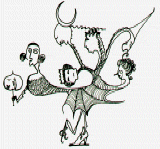Jewelry
boxes and cabinets

Request
current list of available Jewelry boxes.
writing-boxes
jewelry-boxes
tea caddies
sewing-boxes
contents
| |
\
Antique Late 18th C inlayed
Tunbridge ware Maple
box
Please click on images to enlarge | slide show | thumbnail index |Request
current list of available Jewelry boxes.
Reference: JB509
Description:
JB509: Inlaid maple Tunbridge ware box with a central book-matched medallion
in burr yew, framed by
by a formal design of delicate foliage, suggesting the
Grecian laurel or myrtle wreath and further framed by cross bandings.
Inside the box has a liftout tray with two supplementary lids also
with inlay. The edges have an inlay in alternating maple and rosewood.
Circa1790
Origin: UK
Circa: 1790
Size: 26.8cm wide by 21.8 cm by 9.7cm: 10.6 inches wide by
8.6 inches
by 3.8 inches.
Condition: good
condition overall with working lock and key.
|
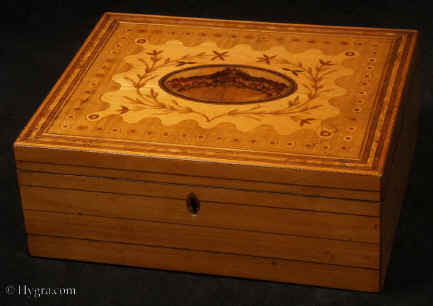
|
Please click on images to enlarge | slide show | thumbnail index |Request
current list of available Jewelry boxes.
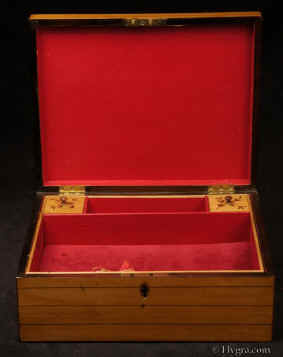
Inside the box has a liftout tray with two supplementary lids which
are also inlaid
|
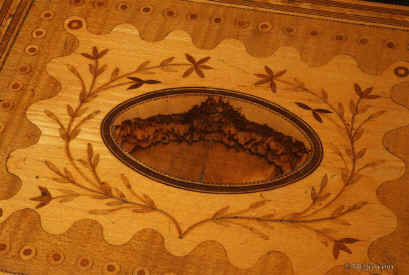
The top is decorated with a central oval medallion of book-matched
burr yew, framed by a formal design of delicate foliage, suggesting the
Grecian laurel or myrtle wreath. This evergreen plant was symbolic of
victory, achievement in the arts, immortality, and love. Sacred to
Venus, it was adopted by the exponents of the neoclassical style. An
Adam drawing in Sir John Soane's Museum library (London) shows this
motif on a chair designed "for the Right Hon. Lord Stanley".
An excellent example of an altogether classical composition, surviving
in original condition.
|
"The term Tunbridge ware is in many people's mind synonymous with
pictorial decoration executed in micro wood mosaic. This technique and
style were adopted from the late 1820s onwards by craftsmen who had been
working within a tradition of fine woodwork for over two hundred years.
Most surviving Tunbridge ware boxes were made during the 19th century,
and are decorated in the micro mosaic method. However, the craftsmen
working within this tradition were striving for a union of excellence
between the material, the workmanship, and the artistic design of an
object, and this they achieved most successfully during the pre-mosaic
period. The term must therefore embrace the earlier work, as well as the
later more substantial and definable output. "
See: Antique
Boxes, Tea Caddies, and Society, 1700--1880 Antigone
Clarke & Joseph O'Kelly, ISBN: 0764316885
|
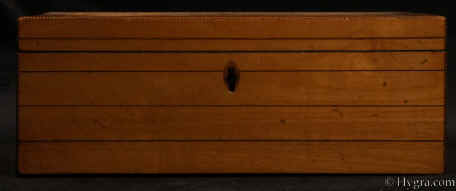
The sides are inlaid with lines in contrasting rosewood.
|
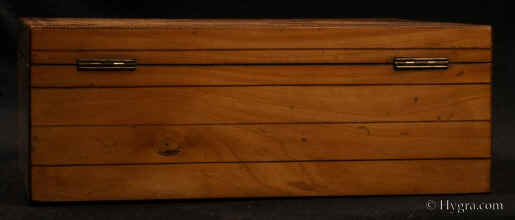
|
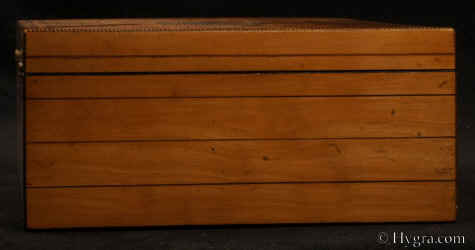
|
Please click on images to enlarge | slide show | thumbnail index |Request
current list of available Jewelry boxes.
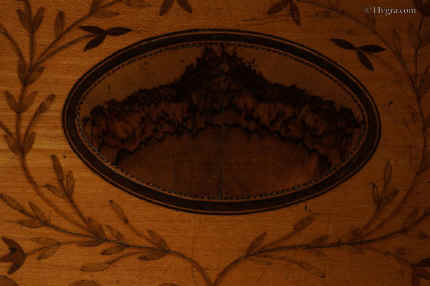
Care fully selected pieces of wood are used to achieve
"art" in wood,
|
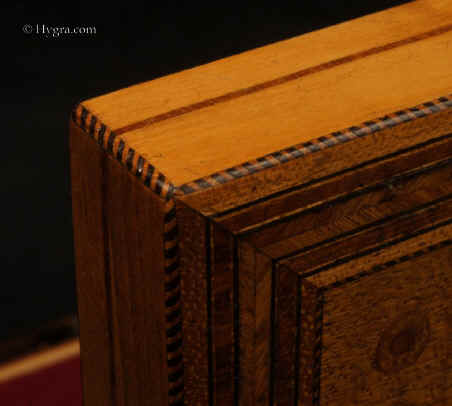
The edges have an inlay in alternating maple and rosewood.
|
The box is lined with paper. New lift out velvet pads have been
made to protect the paper and make the box ideal for keeping jewelry.
|
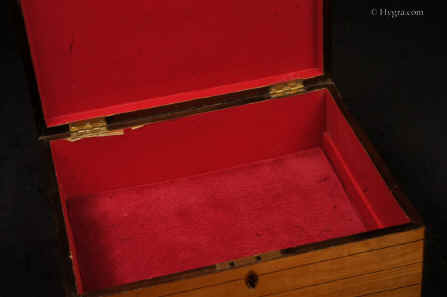
|
Please click on images to enlarge | slide show | thumbnail index |
The box is lined with paper. New lift out velvet pads have been
made to protect the paper and make the box ideal for keeping jewelry.
|
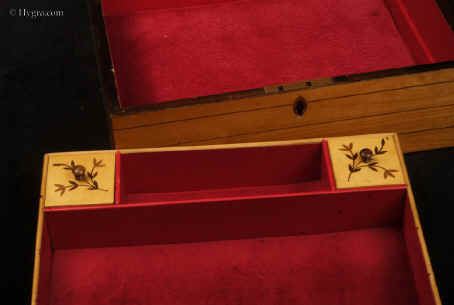
|
Please click on images to enlarge | slide show | thumbnail index |Request
current list of available Jewelry boxes.
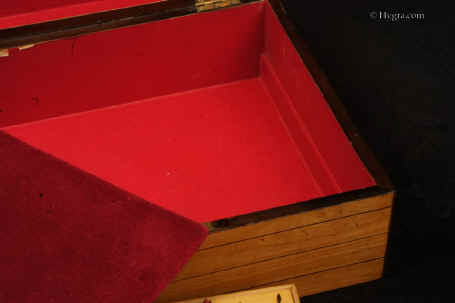
|
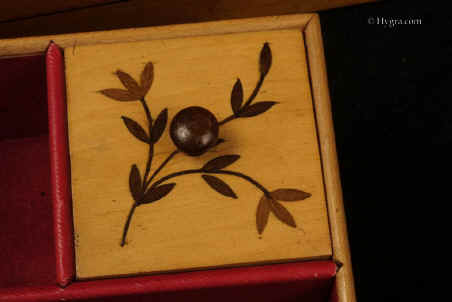
Detail of one of the lids.
|
Please click on images to enlarge | slide show | thumbnail index |
The top is framed by cross bandings of contrasting grain
and colour.
|
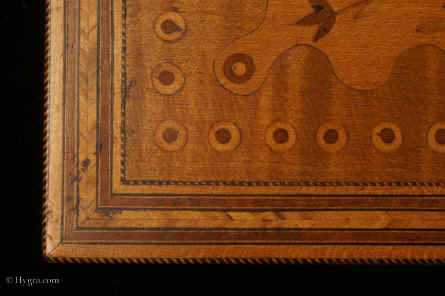
|
Please click on images to enlarge | slide show | thumbnail index |Request
current list of available Jewelry boxes.
Please click on images to enlarge | slide show | thumbnail index |Request
current list of available Jewelry boxes.
All text and images and linked images are ©
1999-2010Antigone Clarke and Joseph O'Kelly. If you require any further
information on permitted use, or a licence to republish any material, email us
at copyright@hygra.com
|
